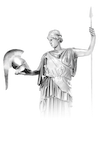Towards Effective Democratic Oversight of Intelligence Services: Lessons Learned from Comparing National Practices
Article statistics
Bibliography
Knigthley, Phillip. The Second Oldest Profession: Spies and Spying in the Twentieth Century . New York: W.W. Norton, 1988.
Lowenthal, Mark. Intelligence: From Secrets to Policy. Washington, D.C.: CQ Press, 2003.
Gormley, Dennis M.. "The Limits of Intelligence: Iraq’s Lessons." Survival 43, no. 3 (2004).
Herman, Michael. Intelligence Power in War and Peace. Cambridge: Cambridge University Press, 1996.
Kent, Sherman. Strategic Intelligence for U.S. World Policy. Hamden, CT: Archon Books, 1965.
Cameron, Iain. National Security and the European Convention of Human Rights. Dordrecht: Kluwer Law International, 2000.
Cited In
von Münchow, Sebastian. "Security Agencies and Parliamentary Committees of Inquiry in Germany: Transparency vs. Confidentiality." Connections: The Quarterly Journal 12, no. 4 (2013): 51-74.
"Службы безопасности и парламентские комиссии для расследования в Германии: прозрачность или конфиденциальность." Connections: The Quarterly Journal 12, no. 4 (2013): 60-86.
Born, Hans, and Marina Caparini. Democratic control ofintelligence sevices: Containing rogue elephants. New York: Routledge, 2016.
Hillebrand, Claudia. Counter-terrorism networks in the European Union: maintaining democratic legitimacy after 9/11., 2012.
Born, Hans, and Gabriel Geisler Mesevage. "Introducing Intelligence Oversight." In Overseeing Intelligence Services: A Toolkit. DCAF, 2012.
Gonçalves, Joanisval Brito. Quem vigia os vigilantes?: O controle da atividade de inteligência no Brasil e o papel do Poder Legislativo., 2010.
Carapeto, Francisco José Alde. Os Limites Das Informações Estratégicas: Eficácia versus Transparência e Legalidade, Como Duplo Dilema de Actuação In Departamento de Relações Internacionais. Lisboa, NOV: Universidade Autónoma De Lisboa, 2010.
Cunha, Bruna Michelle D.. O Controle da Atividade de Inteligência Como Instrumento de Garantia da Coadunação Entre os Princípios Democráticos e o Secretismo da Atividade de Inteligência. Brasília – DF: Universidade Católica de Brasília, 2010.
